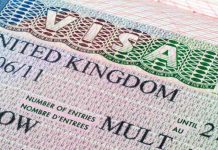The International Air Transport Association (IATA) and its partners have successfully proven that a fully digital air travel experience is achievable, following a real-world proof-of-concept (PoC) journey between Hong Kong and Tokyo. The pilot, involving two passengers, showed how digital wallets, biometric data, and travel credentials can work together to streamline and enhance the entire travel process.
This test, completed on October 21 and 22, involved partnerships with Cathay Pacific, Hong Kong International Airport, Narita International Airport, and technology providers such as Facephi and NEC. It took place in a live airport setting, demonstrating practical applications for digital identity and biometrics at scale.
During the journey, the travelers used digital wallets containing their digital passport, company ID, and frequent flyer credentials to book flights, obtain visas, check in, and manage boarding passes. This seamless experience allowed the passengers to navigate the airports without needing to present physical documents, relying instead on biometric identification. This trial involved seven verifiable credentials, two digital wallets, and a trust registry to verify identity data, all managed through IATA’s Modern Airline Retailing and One ID standards.
“This milestone moves digital identity and biometric-powered travel from theory to reality,” said Nick Careen, IATA’s Senior Vice President for Operations, Safety, and Security. He highlighted that with international adoption of digital identity standards progressing, a fully digital travel experience could become mainstream within a few years.
This pilot not only validated IATA’s Modern Airline Retailing vision but also showed that existing airport processes can be optimized using secure digital solutions. For passengers, this means a personalized, secure, and efficient journey—while ensuring manual document checks remain available as a fallback option.
With continued support from governments and regulatory bodies, particularly in Europe, where digital identity wallets are expected by 2027, IATA foresees the rapid adoption of these innovations. The organization is hopeful that these advancements will lead to a more efficient, secure, and seamless travel experience worldwide.
















